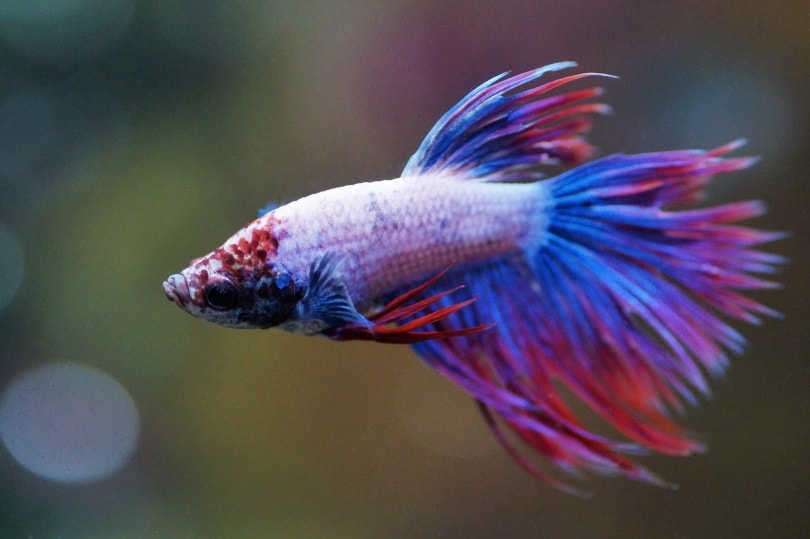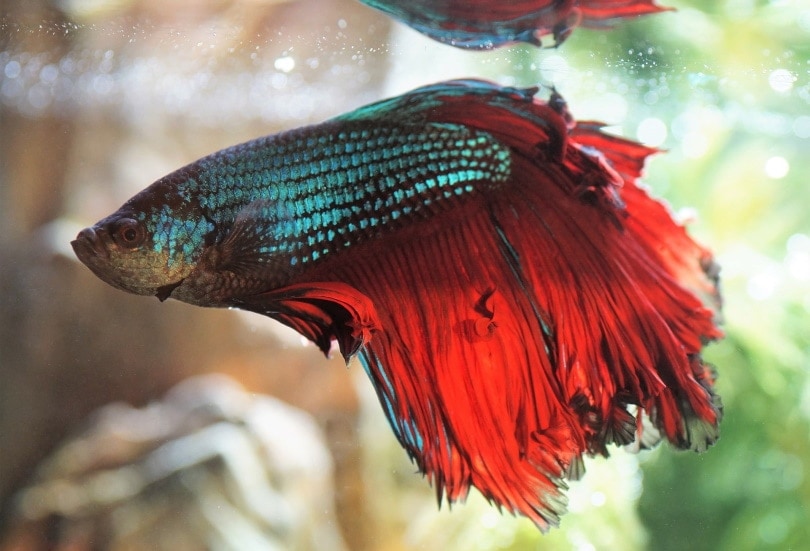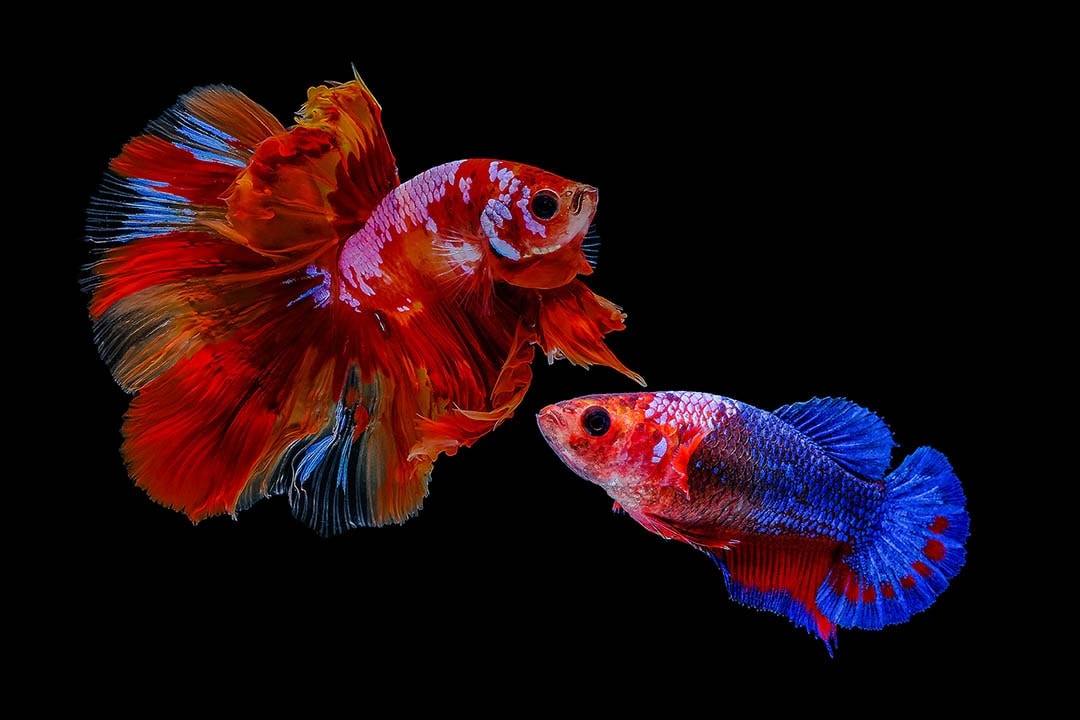How Much Aquarium Salt Should You Use Per Gallon for a Betta Fish Tank?

Updated on
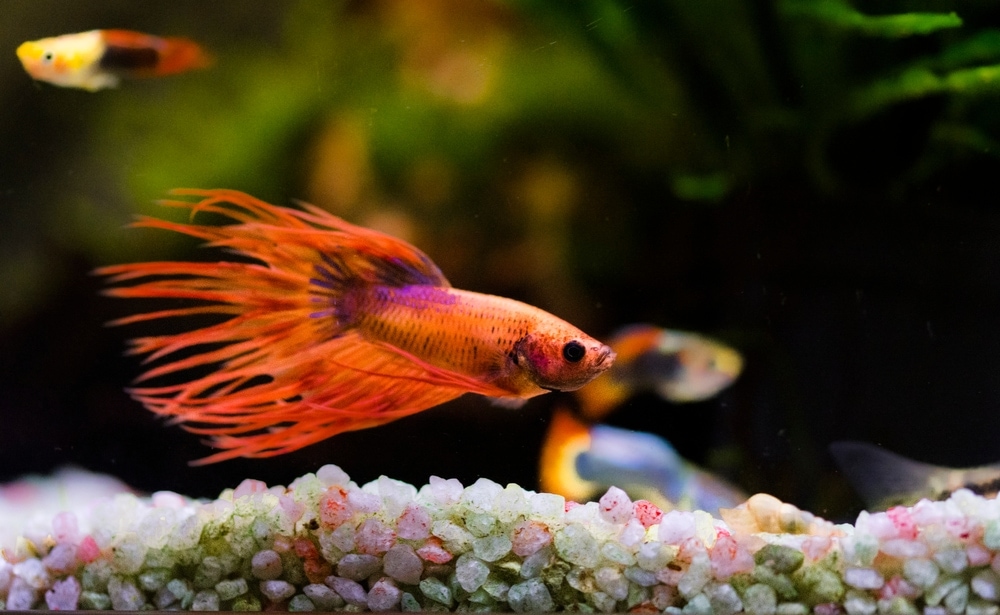
You may think of the Betta as a freshwater fish, but many of the 55 identified species live in brackish conditions.
Now, it may seem counterintuitive to use salt in a freshwater aquarium. However, it can work in certain situations.
It’s helpful to know what aquarium salt is and how it affects fish like Bettas. This knowledge will you better understand its purpose and how it may benefit Bettas when used correctly.
The Composition of Aquarium Salt
Aquarium salt is often described as being simply Na+Cl-, or sodium chloride. However, some products are evaporated seawater, which likely contains more than these two minerals. Marine water typically contains many other chemicals and different types of salts. Minerals such as potassium or calcium will balance out the chloride. That can have varying effects, depending on the composition.
However, products labeled as aquarium salt differ from the ones marketed for saltwater tanks. The two are not interchangeable. They can contain additives that may be harmful to Bettas or other fish.
How Salts Affect the Betta’s Body
The bodies of Bettas and any other organisms try to maintain a balance between the concentration of electrolytes on both sides of a gradient, which is the environment between their cells and the fluids around them. A cell may seep out liquid or absorb it, depending on the circumstances.
Cells can crenate or shrink if the electrolyte concentration around them is higher than within them. Likewise, it may absorb liquid to dilute the environment within the cells if it is lower. If they take in too much, the cells can burst. Bettas have a tolerance for smaller amounts of salts that other organisms may lack. This is why some Betta enthusiasts use aquarium salt.
Benefits of Aquarium Salt
Using aquarium salt offers a few benefits for fish. They can handle the salinity, but pathogens such as bacteria and fungi can’t. Therefore, salt can function as a form of disease prevention. Likewise, it can help as a treatment if your fish gets a common ailment, like velvet.
Salt can bolster your fish’s health by supporting their slime development and maintenance. Fish develop this coating on their scales to help them swim through the water easier by countering the drag caused by the irregular surface of their flanks. It can also provide protection against parasites. Fish benefit from improved respiratory health with better gas exchange.
Aquarium salt can also enhance the water quality of your tank from your fish’s perspective by preventing the uptake of nitrates. These chemical compounds are among the by-products of the breakdown of waste and ammonia in an aquarium, called the nitrogen cycle. Plants use nitrates for food. However, if you don’t have any live plants, they can accumulate.
Fish have limited tolerance for high nitrate levels. Bettas can handle concentrations up to 40 ppm before it starts to take a toll on them. Aquarium salt helps them cope better with less-than-ideal tank conditions.
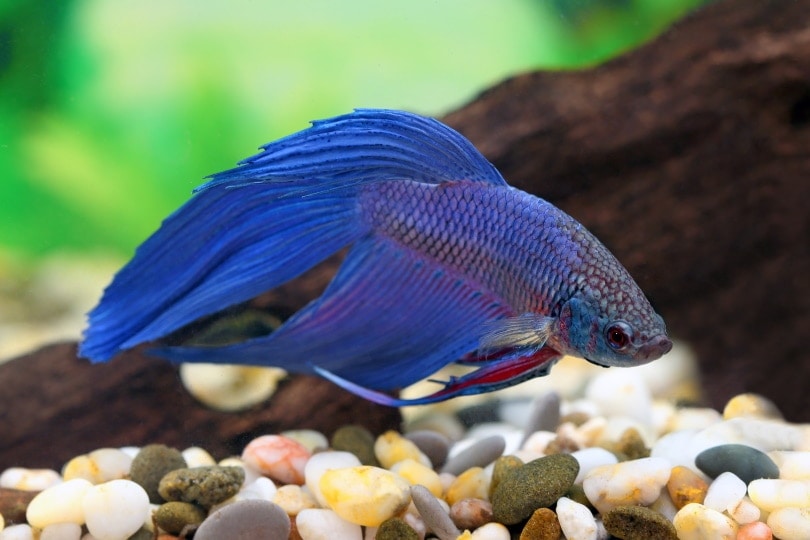
Downsides of Using Aquarium Salt
You shouldn’t add aquarium salt to a tank with scaleless fish, such as loaches and certain catfish, nor should you put it in an aquarium with invertebrates, like snails and ghost shrimp. It’s also a no-no if you have live plants.
Many problems arise from the improper use of aquarium salt. It’s imperative to remember that it doesn’t evaporate or precipitate out of the water. It’s not something that you should keep adding to your tank. Instead, you should only add it to the amount that you are replacing when you do your bi-weekly water changes.
For example, if you replace 5 gallons from a 20-gallon aquarium, add the salt amount for 5 gallons, not 20.
Amount of Aquarium Salt to Use
Follow the manufacturer’s recommendations on the amount of aquarium salt to use. The concentration and makeup of the electrolytes that the product contains may vary. Most products recommend adding 1 tablespoon per 5 gallons of water.
That amount will provide the necessary electrolytes without stressing your fish unduly. Bear in mind that adding aquarium salt will not affect the pH or other parameters of your aquarium’s water chemistry. It’s wise to use it during water changes, when your fish are more likely to be stressed, as a disease preventive.
Final Thoughts
While it may seem counterintuitive, aquarium salt has a place in the care of freshwater fish. It offers several benefits for Bettas and other species to help them cope with stress and prevent disease. The essential thing to remember is to use it as recommended and not to exceed the recommended amount of 1 tablespoon per 5 gallons.
Featured Image Credit: Andrej Jakubik, Shutterstock




